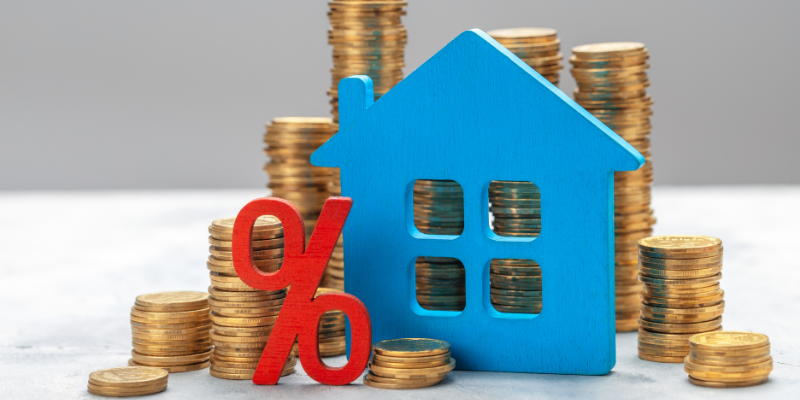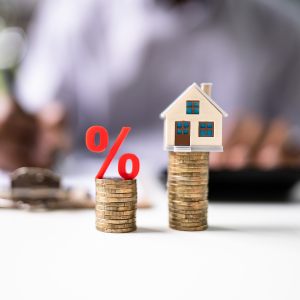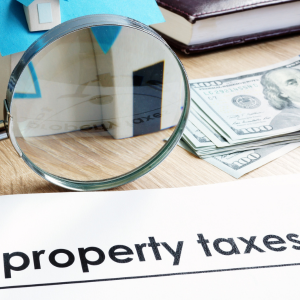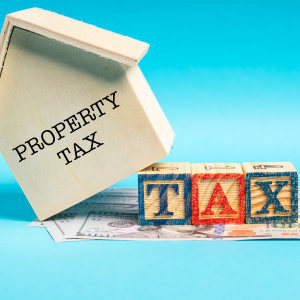
Understanding Property Tax Rates: A Comprehensive Guide
Understanding property tax rates in Tacoma is crucial for homeowners and real estate investors seeking to make informed financial decisions. Property taxes are determined by the assessed value of a property, which is calculated by the local assessor’s office.
Municipal budgets, school district funding needs, and infrastructure projects influence the property tax rate in Tacoma, as they do in many other areas. These taxes are typically expressed as a rate per $1,000 of assessed value and can fluctuate based on annual budgetary requirements set by local government entities.
For both homeowners and real estate investors, staying informed about these changes can help with budgeting and investment strategies. Additionally, understanding how exemptions or relief programs work can be beneficial in reducing overall tax liabilities.
By closely monitoring Tacoma’s property tax policies, stakeholders can better anticipate potential increases or decreases in their obligations. If you need guidance navigating these financial details, Kind House Buyers in Tacoma can help provide expert insight tailored to your specific situation.
Considerations Affecting Home and Property Taxes
There are a few key elements that are important in assessing the property tax in Tacoma, especially for homeowners and property investors. One of these is the assessed value of a property, which is regarded as the primary determinant and is based on the market value. This considers the sales of similar properties in the area.
The local municipal budgets practically dictate the property tax rates, since local revenue is usually used to fund important local services such as public education, maintaining infrastructural facilities, and providing emergency services. Property taxes are also influenced by the economic condition of the region. During economically growing periods, an increase in the home value is usually accompanied by high property taxes and higher tax assessments and is generally considered a boom.
In contrast with the earlier discussed periods of economic growth, economic depression may cause stagnant or declining property values. Property value can also be negatively affected by zoning regulations as well as land use policies that determine how a given piece of land can be developed or used.
With regard to Tacoma, loans and specialist relief available for older and veteran citizens change the tax liabilities for individuals. It is crucial to understand these diverse factors to be able to invest in or own property in the ever-busy capital.
How to Calculate Your Property Tax Bill Accurately
Calculating your property tax bill accurately in Tacoma involves understanding several key components and using them to determine what you owe. First, you’ll need the assessed value of your property, which is determined by the Pierce County Assessor-Treasurer’s office.
This assessed value is a percentage of your property’s market value as estimated by the county. Next, familiarize yourself with the current property tax rate applied in Tacoma, which can vary based on local levies approved by voters for schools, parks, and other municipal services.
To compute your tax bill, multiply the assessed value by the local tax rate; this provides an estimate before exemptions or deductions are applied. Homeowners may qualify for exemptions like senior citizen reductions or certain homeowner discounts that can lower taxable amounts.
For real estate investors, it’s crucial to factor in potential changes in assessment values and levy rates over time to budget effectively. By keeping abreast of annual changes in assessments and local tax rates, homeowners and investors can ensure they are prepared for their financial obligations relating to property taxes in Tacoma. If you need help with your calculations or want professional guidance, don’t hesitate to contact Kind House Buyers for personalized assistance.
Analyzing Tacoma Urban and Rural Property Tax and Rates
Both homeowners and real estate investors in Tacoma need to keep several factors in mind while analyzing property tax rates within the urban-rural divide. As with most urban centers, Tacoma’s services, schools, infrastructure, and emergency services are overburdened, and thus, incur higher property taxes.
Demand for public services such as schools, emergency services, and infrastructure development drives them to be valued more expensively in comparison to rural areas. On the other hand, lower property values and a lesser need for public services enable lower tax rates in these rural areas.
Lesser taxes can come with the trade-off of fewer public amenities and increased distance to basic services in these rural places. An understanding of these factors is important for all prospective homeowners willing to buy and settle down in Tacoma and for investors expecting high returns and capital in different regions.
By weighing the pros and cons of rural versus urban living, individuals are given the power to actively shape their investment portfolios with consideration of taxes.
Ways to Reduce Your Annual Property Tax Liabilities

To reduce your annual property tax liability in Tacoma, homeowners and real estate investors need to make sure that the assessed value of their property is set appropriately against the prevailing market value. Checking the property assessment and comparing it with recent sales of similar properties on a regular basis can help identify errors that justify an appeal.
Submitting a formal appeal may cause the local assessor’s office to review the case and may lead to a reduction in assessed value, which in turn lowers the taxable value. In addition, not all exemptions and deductions have been fully explored; there are also other eligible deductions, such as the senior citizen or disabled veteran exemptions, which substantially reduce valued taxable income, which is the primary focus.
Having a record of home improvements is equally important because while some may increase assessed value, others may qualify for energy efficiency credits or tax rebates that reduce tax liabilities. Welcoming a property tax consultant or attorney specialized in Tacoma rules may yield considerable legally permissible options to further reduce taxes.
Knowing how local levies and bonds impact the property tax rate gives room for consideration in engaging in community initiatives that may lessen the burdens in the long run.
How Property Taxes Influence the Returns of an Investment in Real Estate
Investing in real estate property in Tacoma comes with its own challenges, one of them being the property tax burden, which considerably affects the return on investment. Understanding taxes and tax structures is a must for any investor looking to make an investment in real estate because property taxes impact the cash flow and net income as well.
For any prudent businessman, managing costs is one of the most important rules to follow. Property tax is one of the costs a businessman incurs, and for most companies, it is significantly high. Additionally, investors also need to pay extra attention to investment property locations in regard to raising tax costs. Income forecasts and property tax costs are two of the mutually considered factors of long-term investment planning. Outside these considerations, property tax fluctuations can considerably affect term strategies and resale values.
Having outlined this tax landscape, real estate investors and corporations can strive to improve earnings from real estate investments. On the other hand, rising or unpredictable tax costs can be a serious challenge. It is crucial for all real estate investors to be informed of budgeting shifts that affect tax obligations as well as other imposed taxes.
Navigating the Appeals Process for Property Tax Disputes
Navigating the appeals process for property tax disputes in Tacoma can be a critical step for homeowners and real estate investors looking to ensure their property taxes accurately reflect their property’s value. If you believe your assessed property value is incorrect, it’s important to start by reviewing your assessment notice carefully.
Gathering evidence such as recent appraisals, sales data of comparable properties, and any documentation that supports your claim of an inaccurate assessment is essential. Once you’ve compiled this information, you can file an appeal with the Pierce County Assessor-Treasurer’s Office within the designated timeframe, typically provided on your assessment notice.
During the appeals process, you may have the opportunity to present your case before a review board or hearing officer who will consider your evidence and arguments. Understanding Tacoma’s specific procedures, deadlines, and requirements is crucial to effectively challenging a property tax assessment.
Engaging a knowledgeable local real estate attorney or consultant who specializes in property tax appeals might also enhance your chances of success by providing expert guidance through each step of this often complex process.
Exploring Differences in Commercial vs Residential Property Taxes
In Tacoma, understanding the differences between commercial and residential property taxes is crucial for homeowners and real estate investors. Residential properties, typically owner-occupied homes or rental units, are assessed at a different rate compared to commercial properties, which include businesses and industrial spaces.
The assessment rates reflect the distinct market values and expected revenue generation of these property types. Commercial properties often face higher tax rates due to their potential for income production and greater demand on public infrastructure.
In contrast, residential properties benefit from various exemptions or deductions that can lower their taxable value. This discrepancy arises because commercial real estate is generally viewed as a more significant contributor to the local economy and public services funding.
Real estate investors should carefully consider these tax implications when evaluating investment opportunities in Tacoma, as they directly impact the net returns on their investments. By understanding the nuanced tax structures, both homeowners and investors can make informed decisions regarding property acquisitions and management within the Tacoma area.
Recent Changes and Trends in Statewide Property Tax Legislation
In recent years, statewide property tax legislation has seen notable changes that impact homeowners and real estate investors in Tacoma. Lawmakers have focused on adjusting property tax rates to address economic fluctuations and ensure equitable revenue distribution across Washington State.
These legislative shifts often stem from the need to balance funding for public services, such as education and infrastructure, with the financial burden on property owners. A significant trend is the implementation of caps on annual tax increases, which aim to provide stability and predictability for taxpayers amid rising property values.
Additionally, reforms have been introduced to offer tax relief programs for senior citizens and low-income homeowners, further influencing how property taxes are assessed and collected. Understanding these changes is crucial for both current and prospective property owners in Tacoma as they navigate the complexities of property taxation within a dynamic legal environment.
The Role of Property Taxes in Municipal Budgeting and Public Services

Property taxes play a crucial role in the municipal budgeting process for Tacoma, serving as a primary source of revenue that enables the city to fund essential public services. Homeowners and real estate investors alike benefit from understanding how these taxes contribute to maintaining infrastructure, such as roads and bridges, supporting public education, and ensuring adequate police and fire protection.
In Tacoma, property tax revenue is allocated to various departments and projects that enhance community well-being and safety. By funding parks, libraries, and social services, property taxes help sustain the quality of life residents expect.
Additionally, these revenues are vital for long-term urban planning and development initiatives that attract new businesses and foster economic growth. Understanding the property tax rate is essential for both homeowners seeking to manage their expenses effectively and real estate investors aiming to assess potential returns on investment within Tacoma’s dynamic market.
How Economic Growth Affects Regional Property Tax Rates
Economic growth in Tacoma significantly influences the region’s property tax rates, impacting both homeowners and real estate investors. As the local economy expands, it often leads to increased demand for housing and commercial properties, driving up property values.
When property values rise, assessments conducted by the county typically reflect this increase, resulting in higher property taxes. Additionally, economic growth can lead to increased municipal spending on infrastructure, public services, and schools to accommodate a growing population.
This expanded budgetary requirement may necessitate adjustments in property tax rates to meet revenue needs. For real estate investors looking to capitalize on Tacoma’s market, understanding these dynamics is crucial, as they directly affect investment profitability and long-term planning.
Consequently, staying informed about economic trends and their implications on property tax rates becomes essential for making sound financial decisions in Tacoma’s evolving real estate landscape.
Evaluating the Fairness of Current Property Tax Systems
Evaluating the fairness of Tacoma’s property tax system involves understanding how tax rates impact both homeowners and real estate investors. The property tax rate in Tacoma is determined by several factors, including assessed property values and budgetary needs for local services such as schools, infrastructure maintenance, and public safety.
Homeowners often scrutinize these assessments to ensure they reflect current market conditions and do not place an undue financial burden on them. Real estate investors are particularly interested in how these taxes affect their return on investment, influencing decisions regarding property acquisition and development.
The equitable distribution of tax responsibilities across different types of properties can be a contentious issue, as residential owners might believe that commercial properties should shoulder more of the tax load, given their potential for higher revenue generation. Transparency in assessment procedures and open communication about how funds are allocated can help foster trust in the system.
Addressing disparities in property valuations between neighborhoods also plays a crucial role in ensuring that all residents share fairly in supporting community services.
Tools and Resources for Estimating Future Property Taxes
When estimating future property taxes in Tacoma, homeowners and real estate investors can utilize a variety of tools and resources to make informed predictions. The Pierce County Assessor-Treasurer’s website is an essential starting point, offering access to detailed property tax records and assessment values.
This platform allows users to explore historical data and trends, which can be invaluable for forecasting potential tax changes. Additionally, online property tax calculators are available, providing quick estimates based on current rates and assessed values.
These calculators often incorporate factors such as millage rates and exemptions, giving a clearer picture of what future liabilities might look like. For more personalized insights, local real estate professionals and financial advisors can offer expert guidance tailored to individual investment strategies or homeownership plans.
Keeping abreast of legislative updates through city council meetings or community forums also helps investors stay ahead of any policy shifts that could affect taxation. By leveraging these resources, both seasoned investors and first-time homeowners can better navigate the complexities of Tacoma’s property tax environment.
Common Mistakes Homeowners Make with Their Property Taxes
Many homeowners in Tacoma often overlook key aspects of their property taxes, leading to costly mistakes. One common error is failing to review the annual property tax assessment notices thoroughly.
These assessments determine how much you owe, and inaccuracies can lead to overpayment. Some homeowners neglect to apply for available exemptions or reductions, such as those for senior citizens or veterans, which can significantly lower their tax burden.
Another frequent mistake is misunderstanding the impact of neighborhood improvements on property values and subsequent tax rates; unaware homeowners might be caught off guard by sudden increases. Additionally, some property owners underestimate the importance of appealing an assessment if they believe it’s incorrect; not doing so could result in paying more than necessary.
Finally, new real estate investors sometimes miscalculate their potential return on investment by not factoring in the full scope of property taxes into their financial planning. Understanding these common pitfalls can help Tacoma homeowners and investors manage their property tax responsibilities more effectively and avoid unnecessary expenses.
The Relationship Between School Funding and Local Property Taxes

In Tacoma, the relationship between school funding and local property taxes is a crucial factor for both homeowners and real estate investors to understand. Property taxes in Tacoma are a primary source of revenue for public schools, directly impacting the quality of education and community resources.
The amount collected through these taxes is used to fund teacher salaries, educational programs, facility maintenance, and student services. Local property tax rates are determined based on the assessed value of properties within the district, which means fluctuations in real estate market conditions can significantly affect school budgets.
For homeowners, this connection emphasizes the importance of maintaining property values not only for personal investment purposes but also for ensuring adequate school funding. Similarly, real estate investors must consider how changes in property tax rates might influence their returns on investments while also contributing to community development.
Understanding this dynamic helps stakeholders make informed decisions that support educational quality and enhance property value stability over time.
Analyzing the Historical Trends in National Average Property Tax Rates
Analyzing the historical trends in national average property tax rates provides valuable insights for Tacoma homeowners and real estate investors. Over the years, property tax rates have fluctuated due to various economic conditions, policy changes, and shifts in local government priorities.
Historically, periods of economic growth often lead to increased property values, which can result in higher property tax assessments, whereas economic downturns may cause rates to stabilize or decrease as governments seek to alleviate financial burdens on taxpayers. Additionally, changes in federal and state legislation can significantly impact local taxation policies.
For instance, caps on state funding or alterations in tax deductions can influence how municipalities like Tacoma adjust their property tax rates to balance budgets and fund essential services such as education and infrastructure. By examining these trends over time, homeowners and real estate investors can better anticipate potential changes in their financial obligations and make informed decisions about buying or maintaining properties within Tacoma’s evolving market landscape.
What Is the Property Tax Rate in Tacoma, WA?
The property tax rate in Tacoma, WA, is a critical factor for homeowners and real estate investors to consider when evaluating potential investments or budgeting for homeownership. Tacoma’s property tax rate is determined by several local government entities, including Pierce County, the City of Tacoma, and various school districts and special taxing districts within the area.
As of the latest assessment, the average property tax rate in Tacoma hovers around 2% to 4% of assessed property value. This rate can vary depending on specific locations within Tacoma due to different levies imposed by school districts or bond measures approved by voters.
Understanding these nuances is essential for both current homeowners looking to manage their annual expenses and real estate investors aiming to calculate potential returns on investment properties in Tacoma’s dynamic market. For those exploring faster selling options, working with cash home buyers in Tacoma and nearby cities can offer an efficient way to liquidate property while avoiding delays and unexpected tax complications. Staying informed about changes in the property tax rate is crucial, as it directly impacts financial planning and investment strategies in this thriving Washington city.
What Is the Tax Rate for Tacoma?
The property tax rate in Tacoma is a critical factor for homeowners and real estate investors to consider when evaluating the cost of owning property in this vibrant city. In Tacoma, property taxes are calculated based on the assessed value of a property, which is determined by the Pierce County Assessor-Treasurer’s Office.
The tax rate itself is expressed as a percentage of the property’s assessed value and can vary depending on local levies and voter-approved measures. For 2023, the average effective property tax rate in Tacoma is approximately 1%, though it can fluctuate slightly due to specific district assessments or special levies that may apply.
Understanding this tax rate is essential for budgeting purposes, whether you are purchasing your first home or expanding your real estate investment portfolio in Tacoma. By keeping abreast of any changes in local taxation policies or upcoming ballot measures that might affect the tax rate, homeowners and investors can make informed decisions about their properties.
Additionally, it’s important to consider how these rates compare to other cities within Washington State, as they directly impact overall affordability and potential returns on investment for real estate ventures in Tacoma.
Why Is Pierce County’s Property Tax So High?
Pierce County property tax rates are perceived as high due to several key factors that impact both homeowners and real estate investors in Tacoma. One primary reason is the increasing property values in the area, driven by a robust housing market and demand for residential properties.
As property values rise, assessed values follow suit, leading to higher property taxes. Additionally, Pierce County has specific funding needs for public services such as schools, infrastructure, and emergency services, which rely heavily on property tax revenue.
This necessity to fund essential community services contributes significantly to the overall tax rate. Moreover, voter-approved levies for local improvements and school bonds further elevate the tax burden on residents.
Understanding these dynamics is crucial for homeowners and real estate investors seeking to navigate Tacoma’s complex property tax landscape effectively. By comprehending these contributing factors, individuals can better anticipate changes in their tax obligations and plan accordingly.
What Percent Is Property Tax in Washington State?
In Washington State, property tax rates can vary significantly depending on the county and municipality. For homeowners and real estate investors in Tacoma, understanding these variations is crucial for financial planning and investment strategies.
Generally, Washington State’s property tax rate hovers around 1% of a property’s assessed value, but this can differ in specific areas due to local levies and school district taxes. In Tacoma, property tax rates are influenced by factors such as voter-approved measures, municipal needs, and infrastructure projects.
It’s vital for homeowners and real estate investors to stay informed about changes in the property tax rate to accurately assess potential expenses. For those looking to sell without the burden of extensive holding costs, working with cash home buyers in Washington and neighboring cities can be a strategic move, helping to minimize delays and expenses tied to fluctuating tax obligations.
By comprehending how Washington State calculates property taxes, combining state levies with local taxes, individuals can better navigate the complexities of the real estate market in Tacoma. At the same time, homeowners and investors often explore free things to do in the area as a way to enjoy community life while managing costs.
Do you need to sell your home? Sell quickly, avoid costly repairs, or prefer a hassle-free sale. Kind House Buyers is here to help. We offer fair cash offers, handle all the details, and make the process seamless. Ready to sell or have questions? Call us at (253) 216-2497 for a no-obligation offer. Get started today!
Helpful Tacoma Blog Articles
- Home Sale Contingencies In Tacoma’s Real Estate Market
- Attorney Fees For Home Closings In Tacoma, WA
- Selling A House In Poor Condition In Tacoma, WA, Without Renovations
- Navigating The Sale Of Your Tacoma, WA, Home With An Ongoing Insurance Claim
- Homeowners Insurance When Selling Your House In Tacoma, WA
- Understanding Tacoma, WA, Property Tax Rate
- Fun Facts About Tacoma, WA
- Home Appraisals Before Closing In Tacoma, WA
- Tax Implications For Selling An Inherited House In Tacoma, WA
- Understanding Who Is Responsible For HOA Fees At Closing In Tacoma, WA
- Guidelines For Extended Vacancies In Tacoma, WA, Homes

| TAXABLE PROPERTY | EFFECTIVE TAX RATE | TAX RATE | TACOMA, WASHINGTON | WASHINGTON’S | PIERCE COUNTY, WASHINGTON |
| PIERCE COUNTY, WA | KING COUNTY, WA | KING COUNTY | KING COUNTY, WASHINGTON | KING COUNTY ASSESSOR | HOMEBUYERS |
| MORTGAGES | MORTGAGE LOAN | TAX EXEMPTIONS | MEDIAN HOME PRICE | OWNWELL | SMARTASSET |
| SEATTLE | MEDIAN | VANCOUVER | SPOKANE | PERCENTILE | BELLEVUE |
| ZIP CODE | SALES TAX | PRICE | FEEDBACK | CALCULATION | YOUR PROPERTYS ASSESSED VALUE |
| CALCULATE YOUR PROPERTY TAXES | ESTIMATE YOUR PROPERTY TAX |
